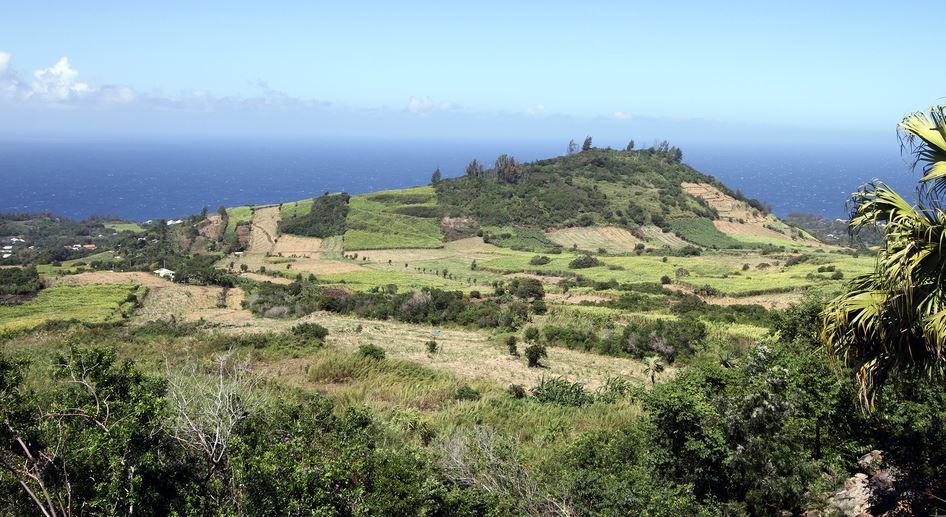- Home
- Worldwide
- CIRAD worldwide
- Projects
- TERRITOIRES DURABLES project
Facilitating the agroecological transition in three overseas départements: Guadeloupe, Martinique and Réunion - TERRITOIRES DURABLES

Agricultural landscape, Petite île, Réunion © F. Le Bellec, CIRAD
Issues
The French overseas départements and regions still use pesticides to ensure agricultural production that is sufficient in terms of both quantity and quality. Past pesticide use resulted in pollution (for instance chlordecone in the French West Indies), and certain products continue to do so (such as glyphosate). In this context, switching to agroecological practices that would enable drastic reductions in pesticide use is now a priority. Many producers have already committed to making the change.
However, the switch to these new production systems raises many issues in terms of sustainability. Producers are having trouble making the transition (lower incomes, a labour shortage, arduous tasks, a lack of recognition, and so on). By involving stakeholders at every stage of the agroecological transition process, from production to promotion, the Territoires Durables project intends to support the development of virtuous production systems that are not reliant on pesticides.
Description
To be successful, the project involves four tasks:
- Exploring the factors for change linked to pesticide use in current and future production systems.
- Co-designing zero-pesticide systems by identifying the obstacles to and levers for building solutions with stakeholders.
- Consolidating, formalizing and developing support methods and tools.
- Supporting territorial development.
Each territory has its own road map, to allow for its specificities and its position on the path towards the agroecological transition.
Expected impacts
In the long term, the French overseas départements and regions will have drastically cut their pesticide use.
Guadeloupe, Martinique and Réunion will have successfully made the agroecological transition. Agricultural product quality will have increased without any drop in quantity.
























